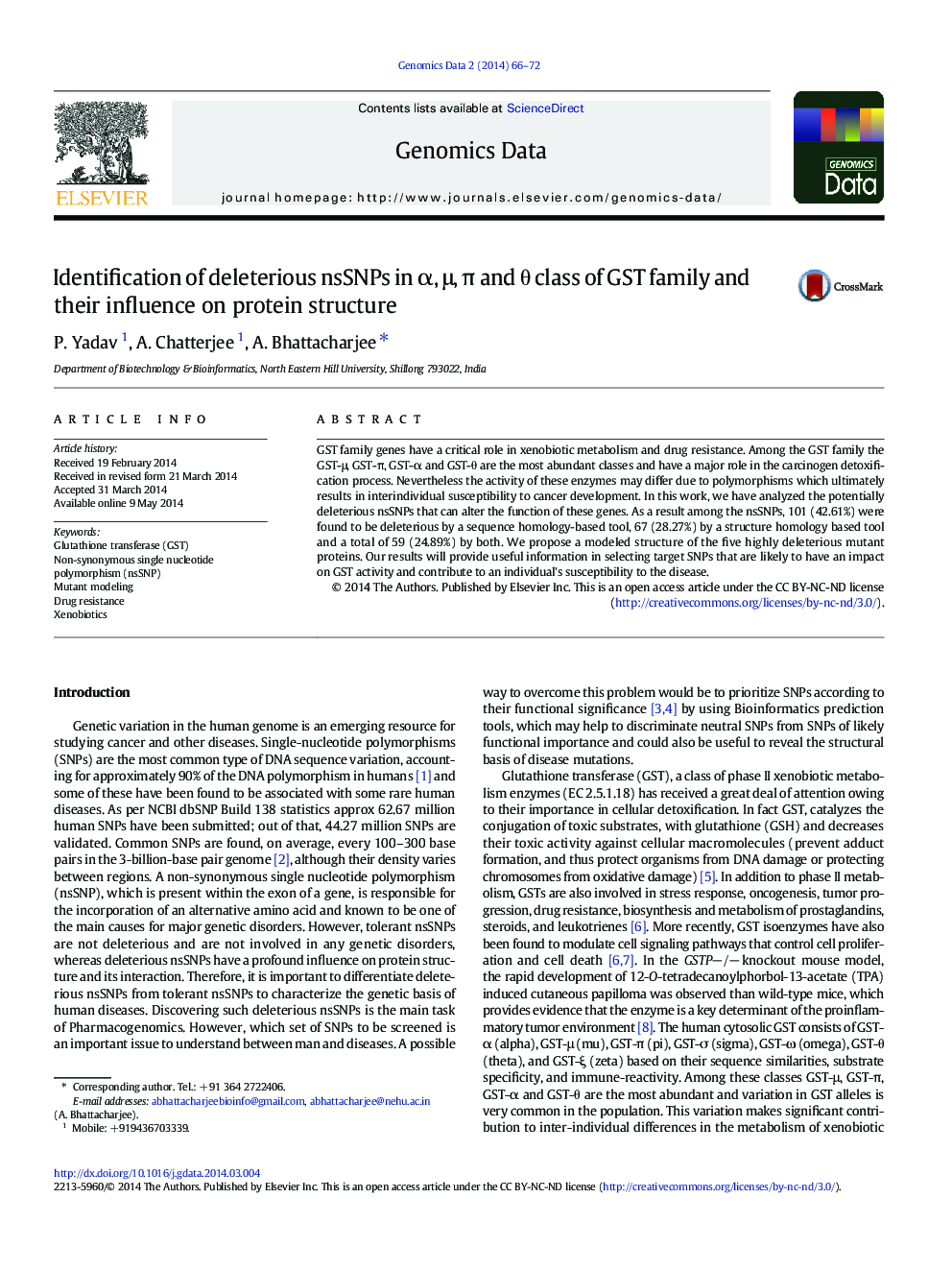| Article ID | Journal | Published Year | Pages | File Type |
|---|---|---|---|---|
| 2822211 | Genomics Data | 2014 | 7 Pages |
GST family genes have a critical role in xenobiotic metabolism and drug resistance. Among the GST family the GST-μ, GST-π, GST-α and GST-θ are the most abundant classes and have a major role in the carcinogen detoxification process. Nevertheless the activity of these enzymes may differ due to polymorphisms which ultimately results in interindividual susceptibility to cancer development. In this work, we have analyzed the potentially deleterious nsSNPs that can alter the function of these genes. As a result among the nsSNPs, 101 (42.61%) were found to be deleterious by a sequence homology-based tool, 67 (28.27%) by a structure homology based tool and a total of 59 (24.89%) by both. We propose a modeled structure of the five highly deleterious mutant proteins. Our results will provide useful information in selecting target SNPs that are likely to have an impact on GST activity and contribute to an individual's susceptibility to the disease.
